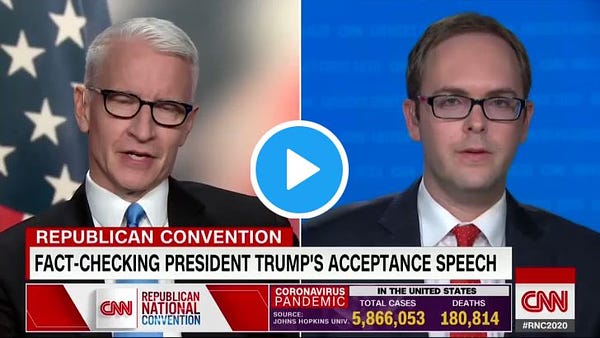INSIGHT: Is Trump's Strategy Working? What's Putin's Strategy? Can a UAE-Israel Warm Peace Succeed?
Diving into Trump plans, Putin's coded messages, the UAE's newly-acquired power, and global pandemic developments.
INSIGHT: NEW STRATEGIES, NEW TACTICS: THE RESULTS…?
What’s really behind the latest moves by presidential candidates in the U.S., by an authoritarian leader in Moscow, by an ambitious Emir in the UAE? Are the unconventional moves achieving their intended goals?
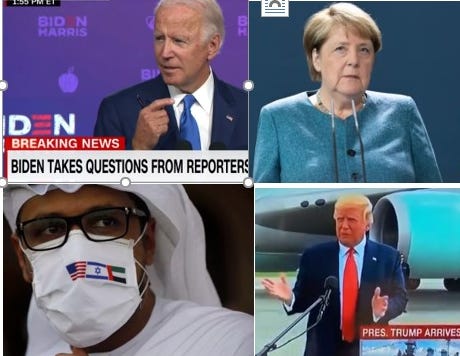
The Highlights:
Trump Campaign Tries New Strategies. Do they work?
Evidence of Russian Involvement in Navalny case. Should American voters care?
The UAE tries a new approach on Israel. Why the UAE could be the winner.
Pandemic News: from Colombia, India, Australia.
INSIGHT: IS TRUMP’S STRATEGY WORKING?
Two months before Election Day and with the party conventions behind us, it’s time to look at the Trump strategy and see if it’s cutting a path to reelection.
First, though, a reminder; Trump could again lose the popular vote and win, as in 2016. Here are the chances Biden could lose, even if he wins:


A raft of new polls came out this week, taking the pulse of voters after the conventions. The news was not good for Trump. In some, Trump narrowed Democrat Joe Biden’s lead. But practically every poll showed Biden ahead by at least seven points. Here are a few of them:

By now, we all know it’s up to the Electoral College, so all eyes are on Florida, Pennsylvania, and a series of battleground states. Biden is ahead in almost all, but in some cases it’s very close. Pennsylvania, for one, seems to be tightening.
Sixty days is a long time, and everything could change. The debates, for example, could transform the election.
With the country in the midst of a deep recession and a relentless health crisis, Trump’s strategy is, shall we say, unconventional. His outgoing advisor, Kellyanne Conway, told Fox News that Trump benefits from violence.
“The more chaos, anarchy and vandalism reigns, the better it is…”
Trump has been promoting social media posts from far-right supporters, cheering them on as they plunged into confrontation with anti-racism protesters, and even defending the man now accused of killing two protesters in Kenosha. Stoking violence is a deeply disturbing element of his strategy, as I wrote.
The plan appears to be to paint Democrats as dangerous; Biden as weak on the unrest, as well as generally senile, addled, and controlled by “radical leftists.”
Biden started pushing back more forcefully against the distortions of his record, and repeatedly pointing out that he rejects looting, rioting and vandalism, even if it comes from his supporters. A lengthy unscripted press conference on Wednesday showed him in full command of his faculties, offering reasonable, practical ideas.
The polls suggest Trump’s message is falling flat.
Much like others, the respected Quinnipiac survey found likely voters prefer Biden by wide margins when asked about the candidates’ ability to handle crises, to make them feel safe, to tackle the coronavirus, etc.

The Trump campaign’s serial distortions – lies – about Biden are epic. CNN’s Daniel Dale, compressed a list of 20 lies in Trump’s convention acceptance speech. It’s a virtuoso fact-checking performance, and worth a couple of minutes of your time.
In a new twist on his claim to be deeply concerned about voter fraud, Trump suggested to supporters they vote twice, by mail and in-person. Experts warned that’s voter fraud –- something he claims to abhor -- a crime. Attorney’s general vowed to prosecute.
Then we found details of another element of the Trump camp’s strategy. ABC News discovered that in July, the Department of Homeland Security blocked the release of an intelligence bulletin revealing a Russian operation to claim Biden was suffering from “poor mental health.” The bulletin was meant for state, local and law enforcement officials. But then-acting DHS chief Chad Wolf prevented its release. Shortly after that, Trump essentially promoted Wolf.
Notably, the Russia plot is virtually identical to the narrative about Biden the Trump campaign is pushing.
RUSSIAN FINGERPRINTS IN NAVALNY ASSASSINATION ATTEMPT - ON PURPOSE?
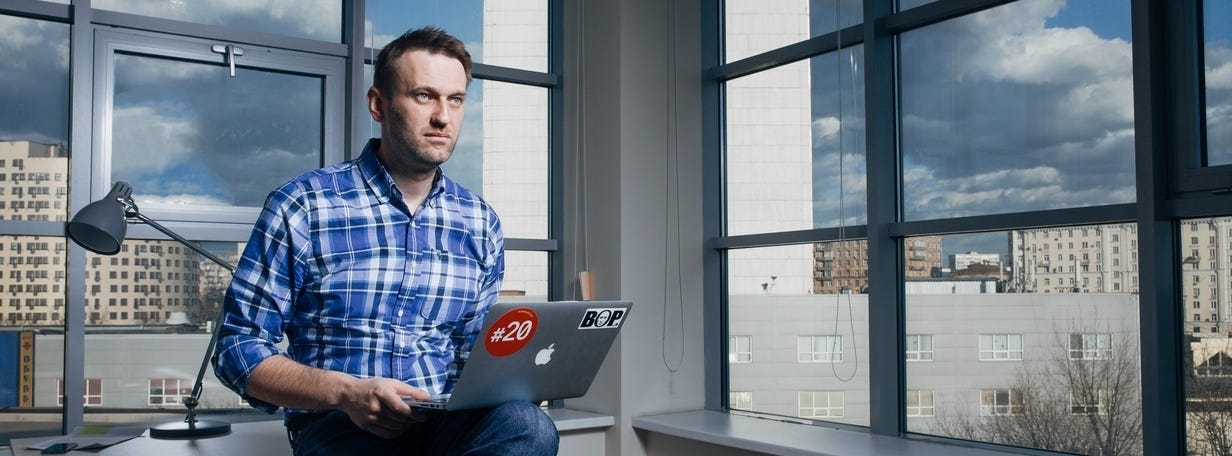
Speaking of the Kremlin and its love of democracy, Germany has now confirmed what we all suspected the moment Aleksei Navalny, Putin’s fearless critic, fell gravely ill: The most likely perpetrators were Russian agents.
Navalny remains critically ill, in a coma, in a Berlin hospital. But the intrigue and the political stakes are rising rapidly.
You’ll recall, Navalny, Putin’s top opposition leader, was on a flight to Moscow from Siberia when he became so ill that the plane made an emergency landing in Siberia to take him to a hospital. Russian media launched a disinformation campaign and officials temporarily blocked him from leaving for treatment in Germany.
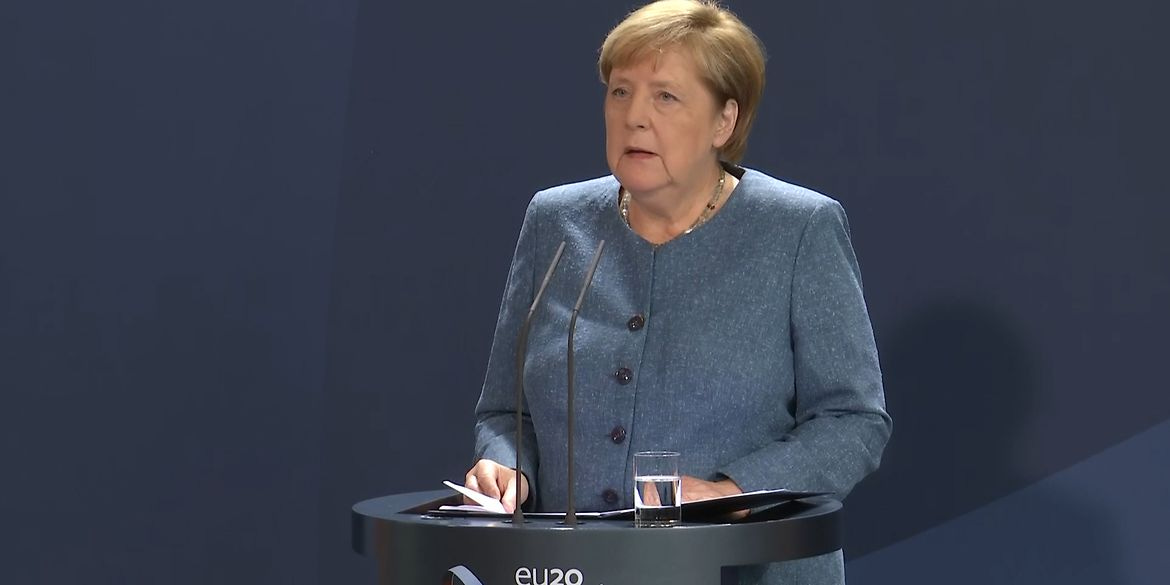
Now, German Chancellor Angela Merkel says there is “unequivocal proof” that Navalny was poisoned with Novichok. That’s a Soviet-developed nerve agent that was used in the attempted assassination of Sergei Skripal, another Putin critic, and his daughter in Salisbury, England a couple of years ago. The UK and key allies concluded that Russian military intelligence carried out the hit and responded together.
Using poison in an assassination attempt tends to blur the perpetrator. But the use of such a well-known Russian chemical suggests the intriguing possibility that Putin – if he was, in fact, behind this attack – wanted to send a warning to his critics.
Russia has dismissed the accusations, as it has every time one of Putin’s critics has died or nearly-died in mysterious circumstances.
Germany, the European Union, the United Kingdom, and others have strongly condemned the poisoning, and called on Russia to investigate what occurred. Merkel is trying to muster a muscular EU-wide response. Her government warned that “dark clouds” hang over the bilateral relationship and the continent’s security is at risk.
What Putin does to his critics should concern all democracies. More on that in a moment.
During the pre-Trump days, the United States would be one of the leading voices and forces uniting its allies against such an egregious act. Murdering political opponents, to state the obvious, is a grave violation of human rights and democratic principles.
Trump, however, has said nothing. Biden, on the other hand, condemned the “Russian state,” in a strong statement. Small excerpt:
“As president, I will do what Donald Trump refuses to do: work with our allies and partners to hold the Putin regime accountable for its crimes.”
It’s another reminder of why Putin does not want Biden to become president, and why Americans should watch how this unfolds:
The Navalny case underscores the malignant character of the Russian leadership that Trump wants to draw closer to, and to which he will be indebted. In a second term, without the limitation imposed on the president’s behavior by the 2016 Russia investigations, Trump will be much freer to acquiesce to Moscow's wishes.
A WARM PEACE WITH ISRAEL?
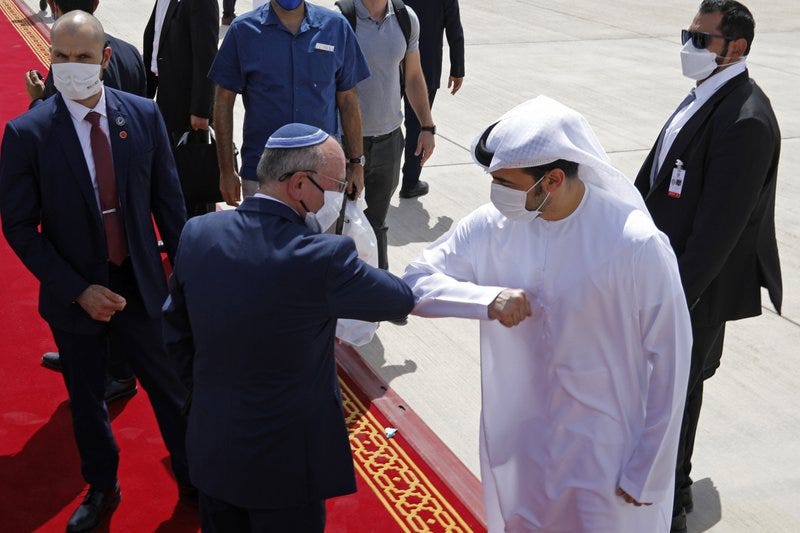
The aftermath of the deal between Israel and the United Arab Emirates to normalize relations has toppled the chess board, creating confusion, excitement and disappointment, along with unprecedented events.
Israelis and Americans traveled to Abu Dhabi in a landmark flight by the Israeli airline El Al. In another first, Saudi authorities allowed the plane to fly over its airspace.
Jared Kushner, Trump’s point man on the Middle East, was on the flight, and he continued touring the region to secure more agreements between Arab countries and Israel.
The Jerusalem Post’s Lahav Harkov wrote about the experience of Israeli journalists, accustomed to a raucous free press environment, working in Emirate restrictions. Initially irritated at being left out of “serious” events, they were taken to tourist sites while their American counterparts were covering the newsier events.
“It was at that point that it clicked for me what the government of the UAE, which organized these tours, wanted to show Israelis via its media… They wanted to try to make peace between people. They wanted to show us a positive view of what they are all about: their hospitality to foreigners and tolerance of other religions.”
When I started traveling to the UAE, I thought the tolerance claim was mere propaganda. I no longer believe that. I think it’s genuine.
The UAE is trying something different. Egypt and Jordan signed peace treaties with Israel, but it was always a cold peace. The Emirates, never really at war with Israel, are offering Israelis what they have yearned for, true acceptance in the neighborhood.
My view on this is different from what I’ve heard from most commentators: I think this gives the UAE enormous leverage in the conflict. Israelis want normalization more than anything. The UAE giveth, the UAE can take it away.
While Israelis celebrate, the Palestinians – and their backers – are understandably incensed, feeling betrayed. The new Arab-Israeli links have undeniably weakened their hand.
Palestinians will have to develop an entirely new approach to the conflict. The UAE formally announced its withdrawal from the Arab boycott. The anti-normalization strategy has failed. Arab countries are more interested in building up an alliance against aggressive Iran and Turkey than in waiting for the Palestinians.
PANDEMIC NEWS

Colombia lifted its lock-down on Sept. 1 after 160 days, bringing a partial end to what was one of the world’s longest quarantines. Many safety measures continue.
India is suffering the largest numbers of new infections anywhere since the start of the pandemic, surpassing the United States and fast-approaching 100,000 new cases per day.
Australia entered its first recession in nearly 30 years because of the pandemic. You read that right. Incredibly, Australia had not experienced a recession since 1991. The pandemic is changing everything.
That’s it for now. Share INSIGHT with your friends — and your foes. And send me your comments and ideas.
Stay healthy, stay informed, stay engaged.
Frida




